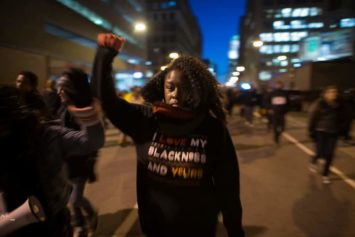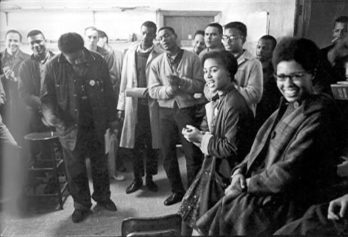
Credit: TeleSUR
A new piece of legislation working its way through the Senate has drawn attention for its attempt to criminalize boycotts against Israel. The bill would make it a felony punishable by a fine and imprisonment to support the BDS (Boycott, Divestment, Sanctions) movement against Israel for human rights violations against the Palestinians. From the civil rights era boycotts of segregated buses and businesses that did not cater to Black people, to the anti-apartheid struggles, boycotts have become an important part of the American legacy of free speech as enshrined in the First Amendment. Civil liberties groups and critics across the political spectrum have cited the chilling effect the bill would have on freedom of speech if enacted into law. The vague language of the legislation, harsh penalties, and a failure of lawmakers to read the text of the bill have caused its sponsors to reconsider their support.
The bipartisan-sponsored bill, S.720, also known as the Israel Anti-Boycott Act, would prohibit support for boycotts by international governmental organizations against Israel, with punishment for violators ranging from a penalty between $250,000 and $1 million, and/or up to 20 years in prison. In the Senate, the bill attracted 46 supporters, 31 Republican and 15 Democratic, while the House version has 234 supporters from both sides of the aisle. Lobbying for the bill is the American Israel Public Affairs Committee (AIPAC)— the pro-Israel group that helped write the legislation and reportedly has made its passage a top priority this year. AIPAC has faced criticism for promoting the right-wing policies of Israeli Prime Minister Benjamin Netanyahu’s Likud Party, and competition from younger, progressive Jewish groups such as J Street, Jewish Voice for Peace, T’ruah: The Rabbinic Call for Human Rights, and IfNotNow, who oppose the occupation.
Also lobbying for the bill is the evangelical group Christians United for Israel. Pastor John Hagee, the founder of the organization, told NPR that “those who live by the Qur’an have a scriptural mandate to kill Christians and Jews. … It teaches that very clearly.” In 2008, Republican presidential candidate John McCain rejected Hagee’s endorsement due to his extremist views, which included claims that Adolf Hitler was a “hunter” of Jews sent by God to get Jews to return to Israel. The radical pastor also blamed the unraveling of America on “nasty” welfare recipients and “pedophile” immigrants.
In a letter to the Senate, the ACLU expressed its opposition to the Israel Anti-Boycott Act, and urged lawmakers to oppose and refrain from cosponsoring the bill because it punishes people and businesses for their political beliefs, a violation of the First Amendment. The organization does not take a stand on boycotts against Israel or any country. “The bill would amend those laws to bar U.S. persons from supporting boycotts against Israel, including its settlements in the Palestinian Occupied Territories, conducted by international governmental organizations, such as the United Nations and the European Union. It would also broaden the law to include penalties for simply requesting information about such boycotts,” read the letter from Faiz Shakir, ACLU National Political Director. Shakir added that under the bill, only those whose lack of business dealings with Israel is politically motivated are subject to penalties, even though many others also do not do business with Israel.
The conservative National Review came out against the bill as well, calling it “unconstitutional and unconscionable.” The author of the commentary, Noah Daponte-Smith, argued the supporters of the measure “should be, quite frankly, ashamed of themselves; they have lost sight of one of the founding principles of American government, allowing it to be overshadowed by the spectral world of the Israeli–Palestinian dispute.”
Sen. Ben Cardin of Maryland, who authored the bill, told The Intercept he is open to amending it to address these concerns, while claiming the ACLU misinterpreted the legislation. The organization stood by its interpretation in a Washington Post op-ed.
The BDS movement began in 2005 as an outgrowth of Palestinian civil society, a nonviolent effort to place pressure on Israel to respect Palestinian rights. Originating with 170 Palestinian organizations, the movement has become global. Inspired by the South African anti-apartheid movement, BDS says it urges Israel to comply with international law. “Israel is occupying and colonising Palestinian land, discriminating against Palestinian citizens of Israel and denying Palestinian refugees the right to return to their homes,” says the BDS website. The Israeli occupation of the Gaza Strip and West Bank (the “Occupied Territories” Israel took over in the 1967 Six-Day War), is half a century old, and the United Nations has declared by resolution that Israel’s settlements on Palestinian land “had no legal validity, constituting a flagrant violation under international law and a major obstacle to the vision of two States living side-by-side in peace and security, within internationally recognized borders.”
There is no consensus regarding the merits of BDS as a tactic. For example, some organizations oppose the Israeli occupation and advocate for Palestinian human rights, yet do not support the BDS movement. However, BDS, like the movement against South African apartheid in an earlier generation, is having an impact and gaining momentum, as evidenced by the pushback inherent in this current legislation.
A number of U.S. states have followed suit in the response to BDS. In 2016, New York became the first state to divest public funds supporting the BDS movement. Gov. Andrew Cuomo signed an executive order directing state government to compile a list of institutions and companies that engage in boycotts, divestment and sanctions against the Mideast nation through a parent or subsidiary. The governor also directed all state agencies and authorities to “divest their money and assets from any investment in any institution or company” on the list. North Carolina is poised to become the 22nd U.S. state to punish companies that do business in their state and participate in the boycott of Israel.
In its extensive policy platform, the Movement for Black Lives calls for a struggle against anti-BDS bills in states across the country, which it says not only harms the movement to end the occupation, but threatens free speech and protest. “Israel is an apartheid state with over 50 laws on the books that sanction discrimination against the Palestinian people. Palestinian homes and land are routinely bulldozed to make way for illegal Israeli settlements,” the group says in its platform. “Israeli soldiers also regularly arrest and detain Palestinians as young as 4 years old without due process. [Every day], Palestinians are forced to walk through military checkpoints along the US-funded apartheid wall.” According to the Movement for Black Lives, the United States is complicit in a genocide against the Palestinian people, with Israel using 75 percent of its military aid to purchase American-manufactured arms, funneling billions of taxpayer dollars to arms corporations, who in turn lobby for increases in foreign military aid. The use of the words “genocide” and “apartheid” in the platform language on Israel-Palestine drew criticism from some Jewish organizations.
“The results of this policy are twofold: it not only diverts much needed funding from domestic education and social programs, but it makes US citizens complicit in the abuses committed by the Israeli government,” the platform said, connecting the dots between war abroad and domestic social programs, reminiscent of Martin Luther King’s stance against the war in Vietnam.
Other groups have linked the suffering of Black and Palestinian people. Palestinian activists used Twitter to instruct protesters in Ferguson, Mo., on how to deal with police tear gas, and delegations of Black activists have traveled to the Occupied Territories as well as Palestinian activists have visited Black organizers in the United States.
Made in USA teargas canister was shot at us a few days ago in #Palestine by Israel, now they are used in #Ferguson. pic.twitter.com/y3co6DMFM6
— مريم البرغوثي (@MariamBarghouti) August 14, 2014
Yeast solution is 5% yeast and 95% water that’s it , Spray it before and after #teargas tips #Ferguson
— Ana Mubasher (@Ana_Mubasher) August 12, 2014
Spray alcohol-based perfume on scarf &wrap on face. The smell helps counteract teargas, scarf protects identity 😉 #Palestine to #Ferguson
— Rana Nazzal رنا (@zaytouni_rana) August 14, 2014
In 2015, on the anniversary of the 2014 Israeli invasion of Gaza, over 1,100 Black activists, artists, scholars, students and organizations signed a statement in “solidarity with the Palestinian struggle” calling for a boycott of companies profiting from the Israeli occupation, including the private prison company G4S. Operation Protective Edge left at least 2,104 Palestinians dead, according to the United Nations — including 1,462 civilians, of whom 495 were children and 253 were women — as well as 66 Israeli soldiers and seven Israeli civilians. Sixty leading Black and Palestinian activists and artists were featured in a video highlighting the commonalities of suffering in both communities, including police violence and prisons.
The move to silence free speech in the United States concerning the boycott of a foreign country has implications for those Americans, including Black people, who have been engaged in a long tradition of boycott as a means of social change. The civil rights movement has employed boycotts as an effective organizing tool, and it is conceivable that such methods will prove useful once again. Organizations may promote sanctions, divestment and boycotts against individual states for their civil and human rights abuses and discriminatory policies. It does not take much of a stretch to envision the enactment of laws criminalizing economic boycotts, divestment or sanctions targeting the United States or individual U.S. states as a means of silencing Black people and their calls for justice at home.
People can agree on whether to boycott, but all should agree that such activity is protected speech which should not be criminalized. Already, according to the ACLU, more than 30 bills in 20 states have been introduced to criminalize peaceful protest.


